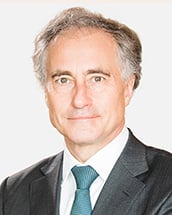In brief
On 10 February 2023, the European Commission finally adopted the Additionality Delegated Act, which outlines conditions under which hydrogen, hydrogen-based fuels or other synthetic fuels can be considered as renewable fuels of non-biological origin (RFNBOs), and the Methodology Delegated Act, which provides the methodology for calculating life-cycle greenhouse gas emissions for RFNBOs, which is necessary to determine whether or not they comply with the EU’s GHG emissions thresholds applicable to such fuels.
Once these Delegated Acts have been officially sent to the European Parliament and the Council, both institutions will have two months (potentially extended by another two months) to object to – i.e., veto – either of the Delegated Acts (pursuant to Article 35(7) of the 2018 Renewable Energy Directive (REDII). Neither the European Parliament nor the Council can amend those Delegated Acts, merely veto or accept them in their entirety.
This alert analyses the Methodology Delegated Act. Our alert on the Additionality Delegated Act can be found here.
In depth
The Methodology Delegated Act provides the methodology for calculating life-cycle greenhouse gas emissions for RFNBOs and recycled carbon fuels (RCFs) – which is necessary to determine whether or not they comply with the 70% greenhouse gas saving requirements applicable to such fuels, as provided by the REDII – and also sets the reference point against which this 70% savings thresholds is to be calculated.
The reference point set by the Methodology Delegated Act means that the total life-cycle GHG emissions from the production and use of RFNBOs or RCFs, as calculated based on the methodology, must not exceed 28.2 g CO2e per MJ. For hydrogen (but not for other RFNBOs/RCF), this is equivalent to 3.38 tCO2e/tH2.
The lifecycle GHG emissions must take into account both direct emissions – i.e., the emissions from the combustion of the fuel during its end-use – and the following key categories of upstream emissions:
- Emissions from the supply of the inputs to the production process (including their production, their transport, etc.).
- Emissions from the production process.
- Emissions from the transport and distribution of the fuel.
The Methodology Delegated Acts provides detailed rules to determine the emissions to be associated with each input, whether they are electricity, or material produced on purposes, or merely by-products of a process aimed at producing something else. Detailed rules are also provided to allocated emissions among co-product, in case the RFNBO/RCF production process leads to multiple useful products.
The two main ways of reducing the life-cycle GHG emissions, besides reducing the emissions associated with the above-mentioned categories, are (i) to use inputs that are associated with avoided emissions (such as captured CO2, see below), and (ii) use carbon capture and storage during the process for making the fuel. Note that carbon capture and storage after the fuel’s combustion is not taken into account in the methodology.
For renewable fuels incorporating carbon (notably including, renewable methanol, but also most sustainable aviation fuels and sustainable maritime fuels), ensuring that the source of carbon used as part of the production process is associated with avoided emissions – typically linked to captured and recycled CO2 – is absolutely critical for them to meet the 70% savings requirements. Indeed, chemically speaking, the combustion of these fuels at the point of use produces the same GHG emissions as if they were derived from fossil fuels. Therefore, in order for such fuels to have any chance of complying with the 70% GHG savings requirements, it is necessary that the emissions avoided thanks to capture of the CO2 be subtracted from the total GHG emissions of the production process. However, this will only be the case only if the CO2 captured complies with the following requirements:
- The captured CO2 cannot stem from a fuel that is deliberately burned for producing the CO2.
- The capture CO2 cannot have received an emissions credit under other provisions of the law (otherwise, this would lead to double counting of GHG emissions).
- The CO2 must originate from one of the following sources and complies with all associated requirements:
- Industrial CO2 (at least temporarily): The CO2 has been captured from an activity listed under Annex I of EU ETS Directive, taken into account upstream in an effective carbon pricing system and incorporated in the chemical composition of the fuel before 2036 (or 2041 for CO2 from outside the electricity generation industry). Given the “effective carbon price” requirements, it will be difficult to procure industrial CO2 outside of the EU.
- Direct air capture: The CO2 has been captured from the air.
- Biogenic CO2 from sustainable biomass: The captured CO2 stems from the production or the combustion of biofuels, bioliquids or biomass fuels complying with the sustainability and greenhouse gas saving criteria, and the CO2 capture did not receive credits for emission savings from CO2 capture and replacement in relation to biomass-based fuel production under the REDII.
- CO2 from compliant RFNBOs and RCFs: The captured CO2 stems from the combustion of RFNBOs or RCFs complying with their own greenhouse gas-saving criteria.
- Geological CO2: The captured CO2 stems from a geological source of CO2, and the CO2 was previously released naturally.
The Delegated Act also places new obligations on the supplier(s) of each input to calculate the GHG emissions intensity of the input following the methodology, and report the value to the next production step or the final fuel producer.
Finally, the Delegated Act adopts a pragmatic approach to determine the share of RFNBOs and RCFs among output fuels which cannot fully qualify as such. The share of RFNBOs in the total output fuel must be determined by dividing (i) the “relevant” renewable energy input into the process by (ii) the total relevant energy inputs into the process. The share of RCFs in the total output fuel shall be determined by dividing (i) the “relevant” energy input qualifying as a source for the production of RCFs into the process by (ii) the total relevant energy inputs into the process.





